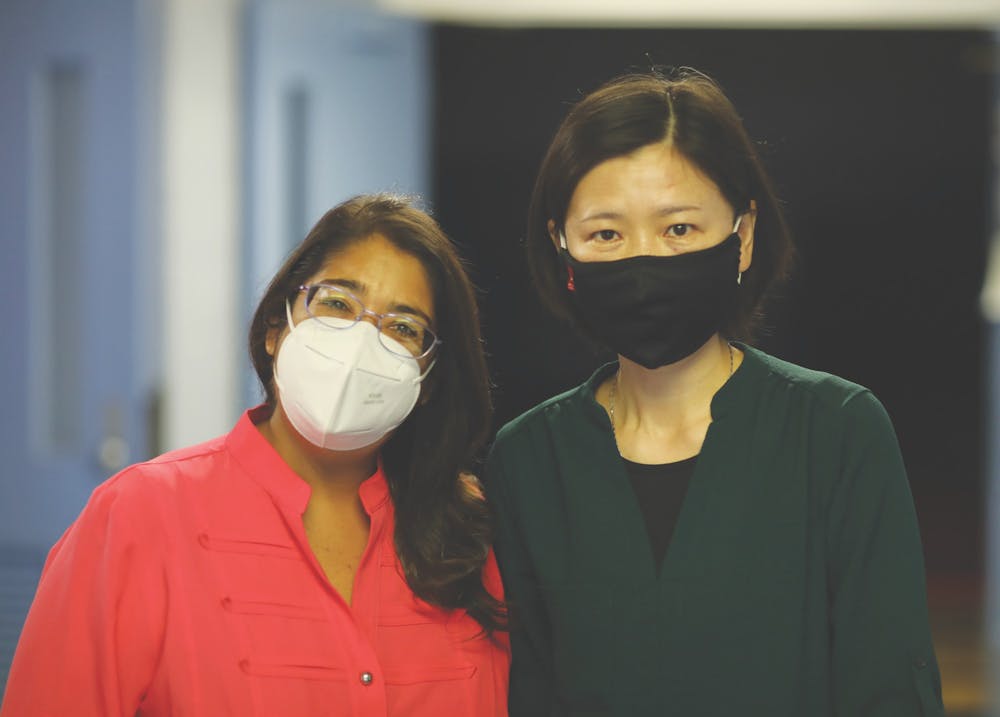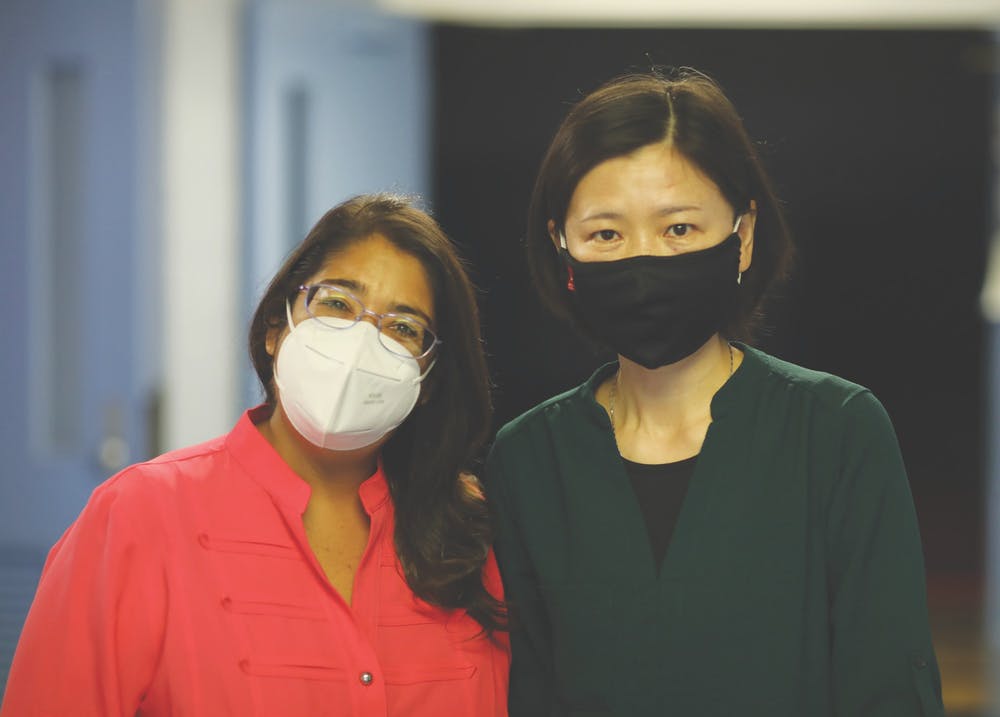By Grace McCormick
For Jacqueline Hanoman, executive director of the Ross Community Center, well-rounded programming goes beyond after-school crafts and youth baseball. Since joining the Ross Community Center in 2015, she has put an emphasis on expanding programming for multiple age groups.
“As I was creating our strategic planning every year, I realized one of the things we were missing was the outreach to our community friends who speak other languages,” Hanoman said. “So, I became very interested in what opportunities are out there for our community friends, and one of those things is a gathering place. As I was speaking to people within my own community, I suddenly realized there was a need for English as a second language for adults.”
Hanoman reached out to Ball State’s Intensive English Institute (IEI) because she knew IEI staff members were teaching English as a second language (ESL) to students and parents of Ball State and surrounding K-12 public schools.
“I knew you had to pay for those courses, but I wanted something that would either be very low cost or free to be able to reach out to our friends who have fewer economic resources and people in the community who have no connection with Ball State or with the schools,” she said.
Hanoman and IEI staff members developed a program aimed at adult immigrants who wanted to learn or strengthen their English speaking skills. She said the program officially started in 2019 but paused during the COVID-19 pandemic. After more than a year of not being able to host the program, the IEI is offering free ESL classes at the Ross Community Center once again, using funds from its individual budget to support the program.
Sign up for Ross Community Center classes
English-as-a-second-language courses are scheduled each week Oct. 5 – Dec. 17, 2021.
Students will focus on reading and grammar Tuesdays and Fridays from 10-11 a.m. and conversational English Wednesdays and Thursdays from 1-2 p.m.
Classes are located at the Ross Community Center at 1110 W. 10th St. Class size is limited to eight students for each class, and face masks are required. Call 765-747-4741 to register.
Source: Nell Rose Hill, interim director of the Intensive English Institute
Nell Rose Hill, IEI interim director, said interested community members will have the opportunity to meet at the community center four times per week, with Tuesday and Friday classes focused on reading and grammar and Wednesday and Thursday classes focused on conversational English.
Hill said the IEI had taught classes at the Ross Community Center before the COVID-19 pandemic began, but the three current members of the IEI team hadn’t taught classes at the community center before. The relaunch of the program was in part encouraged by Susana Rivera-Mills, provost and executive vice president for academic affairs.
“When I met with the provost about our program, she did again emphasize this desire to connect with the community and create courses, even a community learning unit, and broaden it not just to linguistic needs, but any kinds of needs with the international community,” Hill said. “That definitely is a focus of hers, and we’re trying to help.”
Hill said the ESL classes complement the university’s strategic plan of community engagement and impact by “mobilizing and leading partnerships that revitalize and sustain our city and our region.”

The IEI instructors — Susan Luo, assistant teaching professor, and Safwan Malasalih, assistant lecturer of intensive English — plan to take a needs assessment the first week of classes, which began Oct. 5. Luo said her reading and grammar assessment might include free writing exercises and discussions about what students want to learn from the course, focusing specifically on concepts with which students struggle. Malasalih said he will ask students questions about what they want to use English for, such as getting a job, schooling or running errands.
Malasalih said the needs assessment for students in his English conversation class will help determine how to adjust his teaching and activities to fit what learners hope to get out of the class.
“It might be, ‘I need to be able to read a consent form for my child,’ or ‘I need to be able to communicate with a loan or mortgage professional,’” he said. “I cater to their needs because that’s a huge part of what we do.”
Malasalih also said he will use tasks and application-based instruction so people attending class can apply what they’ve learned to their daily lives.
“The experience with the community is something that has always been immensely rewarding for the program and also to get the word out regarding what we do here on campus,” he said.
Though ESL classes are currently only booked through the end of the fall semester, Luo said she hopes the program continues into the spring and other semesters.
“I hope this program will be sustained and [developed],” she said. “Maybe in the future, we will involve more graduate and undergraduate students because it would be a great internship for them.”
Luo, whose classes will focus on reading and grammar, plans to also instruct with application-based models.
“Many times, a second-language learner will blame grammar as the reason their second language is not that good,” she said. “I think my teaching will be based on community themes like transportation, career, school, post office, library and all kinds of categories.”
Hill said if faculty are available, the IEI may consider offering ESL classes on Ball State’s campus during the evenings.
“It really depends on the demand, too,” Hill said. “From my experience, it’s a lot of word of mouth and just how fun the class is. They’re looking for return on investment, even when it’s free — what am I getting out of this, and is it worth my time?”
Although she appreciates being able to spread awareness about the IEI and connect Ball State initiatives to the Muncie community, Hill said the overarching goal of the free ESL classes is to provide a service to the community.

Hanoman is working to organize childcare at the Ross Community Center for ESL students who may have young children with them during the day but would still like to come to classes.
“Most immigrants do not have close family members who can take care of their children while they’re out doing something,” Hanoman said. “So that’s why I thought about it — I thought we might be able to get more people. Then, we also provide not only the service of the English classes but that care of family and community that our community center is all about.”
Hanoman said she looks forward to talking with ESL students about what they are learning and enjoying from the classes. Through the continuation of the ESL program, Hanoman said she hopes participants will be able to “live a fuller life in this society by being able to speak and understand some of the cultural norms.”
“It’s also sharing with the immigrants where spaces of comfort are, and that’s what the Ross Center would do, too,” she said. “The instructors are there to teach English, but they’re also there to — through the teaching of English — create a cultural bridge because language is culture.”
Contact Grace McCormick with comments at grmccormick@bsu.edu or on Twitter @graceMc564.
Featured Image: Rylan Capper

